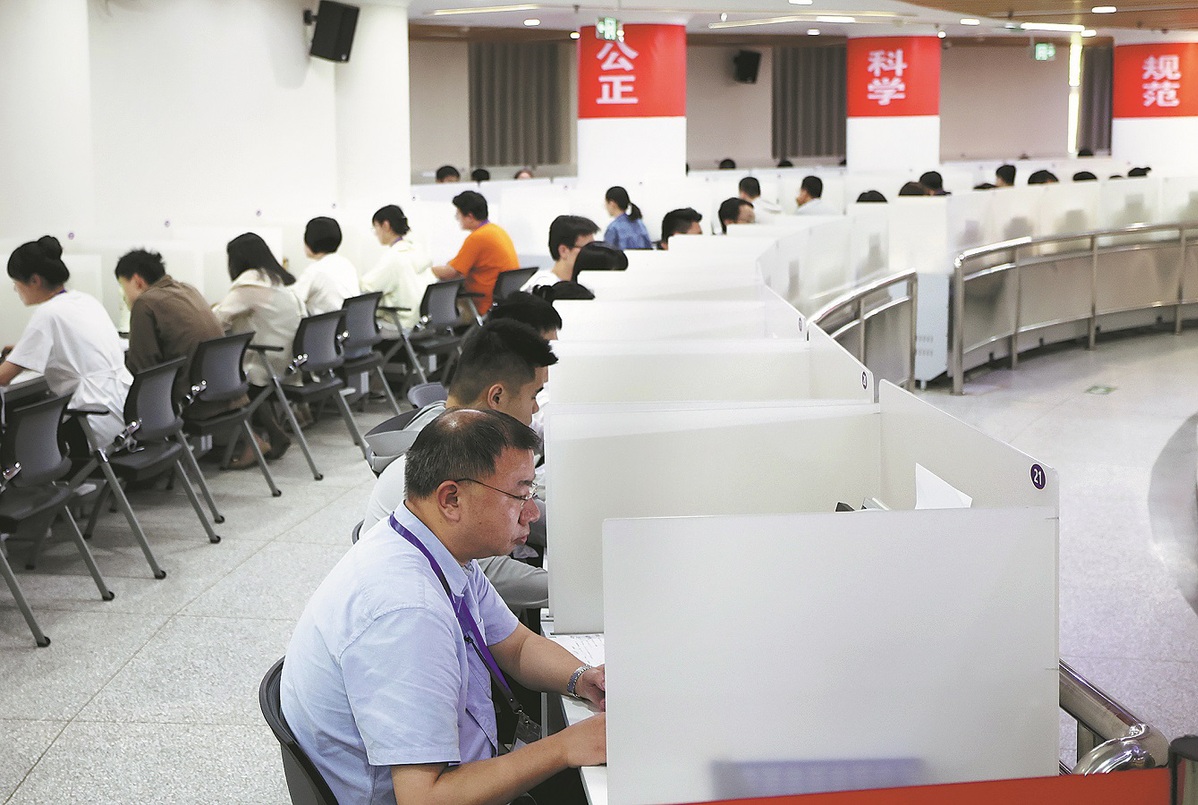Police warn public about gaokao scams


Examinees and their parents should be vigilant if they receive offers of help in checking national college entrance exam scores early or assistance in applying for scholarships because they could be scams, Beijing police have warned.
Soon after the exam — also known as the gaokao — which was held from June 7 to 10, the Beijing Public Security Bureau released an online anti-fraud handbook that summarizes several common test-related tricks, reminding students and guardians to avoid being deceived.
This year's exam scores are expected to be available from the end of this month, but police said that based on previous cases, some candidates and their parents are eager to learn their scores in advance, leading them to trust false promises of early access to the results.
Some scammers were found to have sent web links through text messages or WeChat groups to students and their families. After clicking on the links, users would be required to enter their identity card and examination registration numbers, and also pay some fees, police said.
"Such fraud not only resulted in financial losses, but also led to the leakage of personal data," they said, stressing that the exam scores can only be checked on an official website designated by the Ministry of Education.
The handbook also outlined another scam, in which individuals took advantage of the financial difficulties faced by some students' families and their need for scholarships to help pay for their college tuition. The scammers impersonated education department or university staff members, claiming that they could help students apply for scholarships, but asked them to first pay some registration fees.
Applying for a scholarship does not involve payment of any additional fees, police said, "so students in need must be vigilant."
"After being admitted to a university, it's important to promptly verify the scholarship application information with the school or education department via their official channels," they said.
Over the past week, public security bureaus, education authorities and prosecuting organs in many provinces, including Hebei, Hubei, Jiangxi and Sichuan, have issued similar anti-scam tips about the exam to help students protect themselves from being cheated.
To protect the legitimate interests of those taking tests and ensure educational fairness, China has intensified efforts to crack down on violations and crimes related to exams over the past few years.
It passed an amendment to the Criminal Law in 2015 that added crimes, including organizing cheating in exams, illegal sale or provision of exam questions and answers, and taking exams on behalf of others, aiming to address behaviors that disrupt order in national exams.
From November 2015, when the amended law came into effect, to April this year, more than 11,000 people have been punished for exam-related crimes, according to data released by the Supreme People's Court early this month.
The court highlighted the growing sophistication of cheating schemes, facilitated by advances in communication technology, and pledged to crack down on the entire cheating chain, targeting those who provide technology platforms, sell cheating tools or illegally obtain test papers.
- Rare snow leopard fossils trace evolutionary history of species
- Solar power projects drive ecological restoration in North China's deserts
- Media outlets sign cooperation agreement
- Scientists shed light on construction of dynamic supramolecular snub cubes
- Beijing holds vibrant New Year celebrations at Shougang Park
- Trade between Chinese mainland, Taiwan records year-on-year increase of 9.4%





































